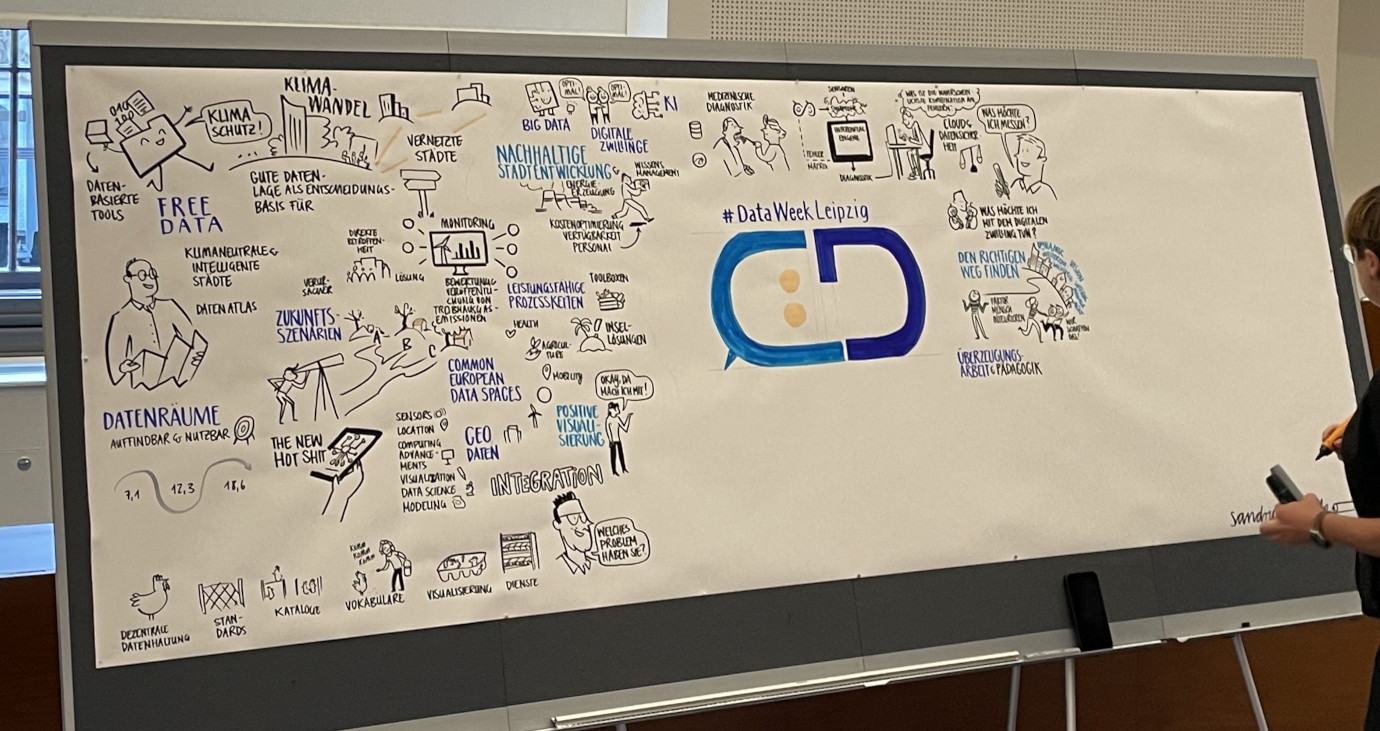Climate Services using Open Data & Open API Standards
From June 26 to June 30, 2023, the second Data Week took place in the historic New City Hall in Leipzig, Germany. The main theme of the conference was urban development and planning. On Monday, the presentations and keynotes focused on the European Green Deal projects and Data Cubes as a digital data resource to create a geospatial ecosystem for Europe. Tuesday’s focus was on FAIR data, various urban planning topics and different data spaces such as agriculture, biodiversity and climate. 52°North’s Johannes Schnell opened the Climate Data Space panel with a presentation of current projects. Wednesday evolved around AI and the need for semantics when providing data to make it machine readable and processable. The last two days were dedicated to workshops and discussions on sustainability and reproducibility of AI.
Johannes showcased 52°North projects that use FAIR data and follow open source principles to produce open data and processes that are interoperable and reusable. In the I-CISK project, our team is jointly developing a Climate Service to help stakeholders in the seven Living Labs adapt to and understand the impacts of climate change in their specific field. They will receive highly customized data analysis and visualizations in the Climate Service. We also work on a Climate Service within the DIRECTED project. It focuses on providing an infrastructure for sharing data, knowledge and information between different actors. This in turn will create actionable solutions for multi-hazard risks and increase resilience to hazards in the 4 Living Labs. Both projects fall under the EU Horizon Europe Work Programme, which is part of the European Green Deal. Johannes also presented our contributions to the OGC Disaster Pilot 23, where we are using new OGC standards such as API processes to create workflows that address drought risks and wildfire hazards in North America. In addition, he raised the question of whether climate services need to produce FAIR data themselves, and emphasized that terms like FAIR data, analysis-ready data, and open data should be used more strictly in their definitions to prevent them from becoming buzzwords and losing their intended scope.
The panel continued with Dr. Nico Hempelman, one of the co-organizers of this year’s DataWeek, talking about the use of AI in the CLINT project. Timm Dapper’s creation of 3D trees that can be used as assets to help visualize climate zone change and climate projections. This was followed by Suzana Blesic, who gave insights into the CLIMOS project, which focuses on the provision and collection of health data. The panel was concluded by Guy Schumann who talked about his participation in the OGC Climate Resilience Pilot. Guy is also a participant in the OGC Disaster Pilot 23.
The collection of topics within the panel was a great fit and showed how different approaches can be taken to use and/or produce FAIR and Open Data to address today’s climate change challenges.

The Data Week team streamed the sessions on their Youtube channel. Check out the Climate Data Spaces panel here from the beginning until the 1:20h mark.
Neues Rathaus Leipzig (image source: Abenteuer Albanien at Unsplash, leipzigfreetours.
